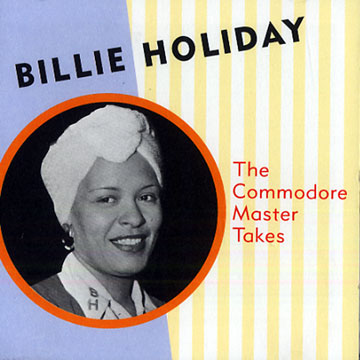
Billie Holiday Commodore Master Takes Raritan
Photo from magazine, c. February 1947 Studio albums 12 Live albums 3 Compilation albums 24 Box sets 5 The of consists of twelve, three live albums, twenty-four compilations, and five. Holiday recorded extensively for six labels: (on its subsidiary labels,, and ), from 1933 through 1942; in 1939 and 1944; from 1944 through 1950; briefly for in 1951; and its earlier imprint, from 1952 through 1957; again for from 1957 to 1958 and in 1959. Many of Holiday's recordings were released on, before the advent of, and only Clef, Verve, and Columbia issued Holiday albums during her lifetime that were not compilations of previously released material. Many compilations have been issued since her death, including comprehensive and live recordings.

Although many of 's recordings for Commodore and Decca are often overlooked -- at least in comparison to the songs that bookend her career (for Columbia and Verve) -- they include some of her best work, beginning at the end of the '30s with 'Strange Fruit' and stretching to the end of the '40s with 'God Bless the Child.' In 1939, was a jazz sensation without a hit record. She gained that hit record, and began her journey to musical immortality, when her label Columbia refused to record 'Strange Fruit,' and jazz fan welcomed her to his aficionado label, Commodore. Recorded often over the next ten years, both at Commodore and through his work at Decca in the mid-to late '40s. While on Commodore, focused on downcast ballads, including 'I Cover the Waterfront' and 'I Gotta Right to Sing the Blues' (dubbed 'loser' songs by ), but she also excelled with warm and affectionate material too, 'Embraceable You' and 'On the Sunny Side of the Street.' Regardless of the material, her backing consisted of small groups usually led by a pair of saloon-sound maestros: on trumpet and on piano. Trial balance report sap software.
That sound was in for a switch when moved to Decca, however, beginning with another big hit, 'Lover Man,' a pop ballad with the full crossover treatment -- strings and all. ( had no compunction about false notions of purity, and he happily recorded with strings and backing choruses whenever the song demanded it.) Even more than her work for Commodore, 's work for Decca was melancholy and resigned in the extreme, with sterling treatments of yet more loser songs: 'Don't Explain,' 'Good Morning Heartache,' 'You Better Go Now,' and 'What Is This Thing Called Love.' Individually, the songs are excellent, and as a package, can hardly be beat. It's a splendid accompaniment to similar sets devoted to 's Columbia and Verve output, and while completists will bemoan the lack of the many alternate takes -- most of the Commodore sides have two alternate takes for each master recording, available elsewhere -- this is all the war-years one could hope for.
Find a Billie Holiday - Sixteen Of Her Greatest Interpretations first pressing or reissue. Complete your Billie Holiday collection. Shop Vinyl and CDs. Find a Billie Holiday - The Commodore Master Takes first pressing or reissue. Complete your Billie Holiday collection. Shop Vinyl and CDs.